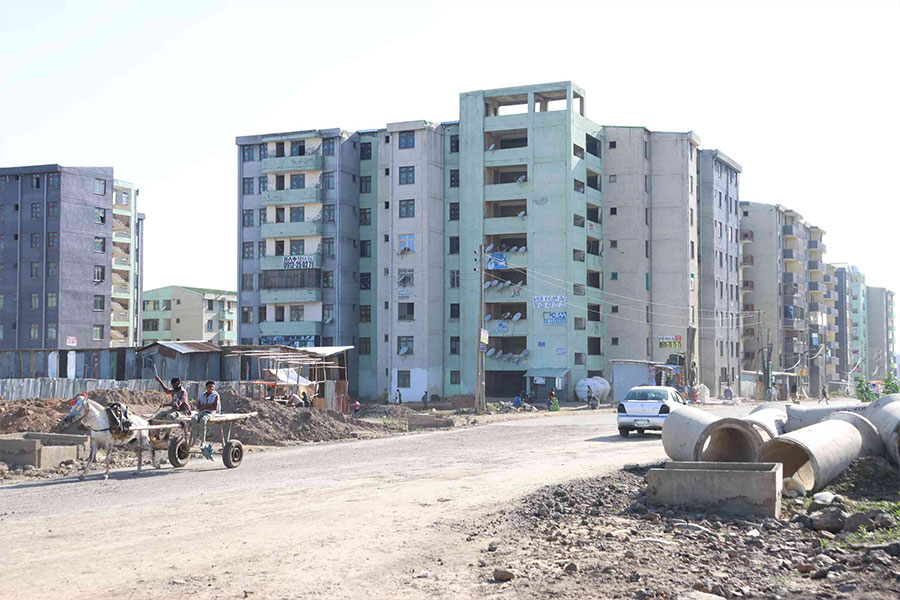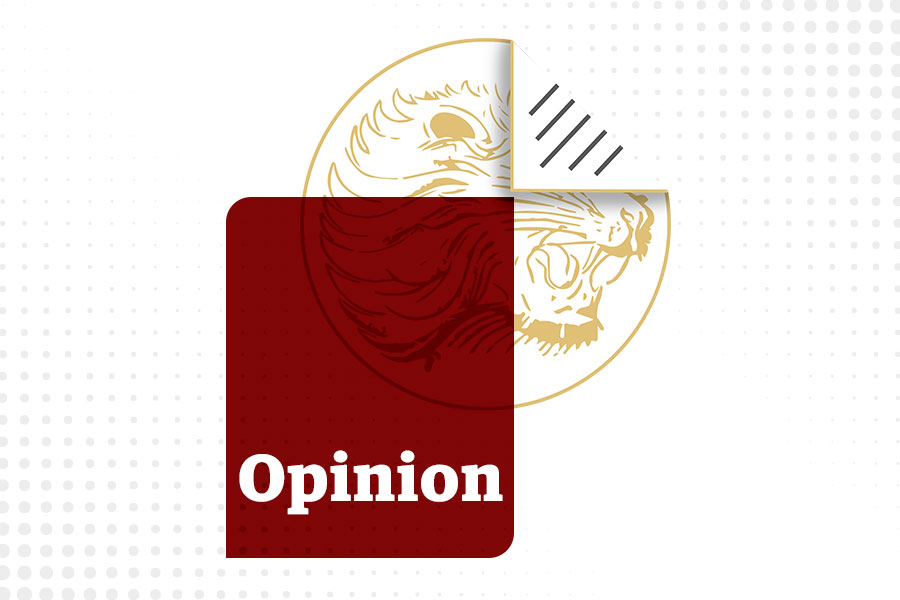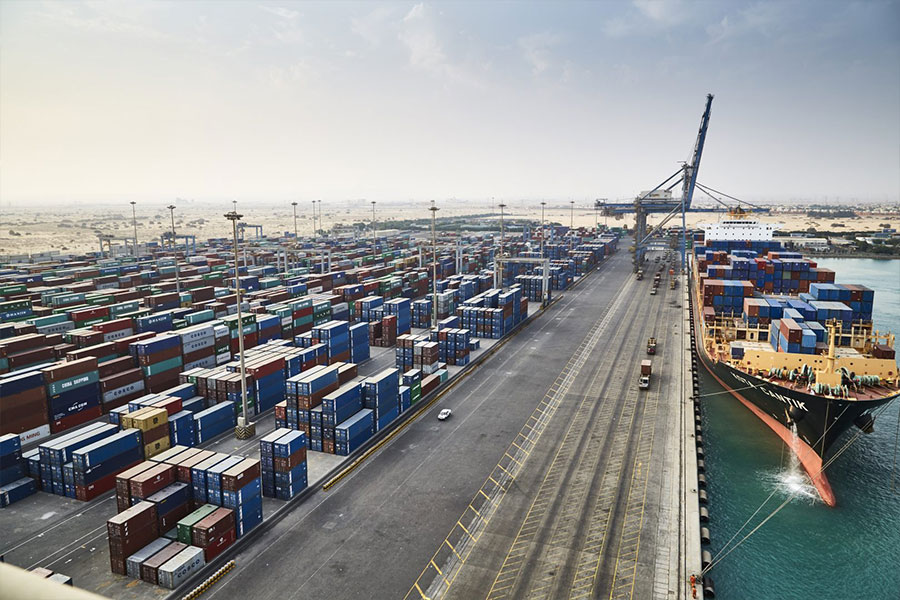
Fortune News | May 11,2025
Apr 22 , 2023
By Bjorn Lomborg
 Most people in the developed world do not have to worry about losing the right to live where they do. Having a deed or a rental contract, it is unlikely that someone would turn up with their paperwork and kick them out. This security means owners that build a new kitchen know they can enjoy it for decades or increase the value of their property when they sell.
Most people in the developed world do not have to worry about losing the right to live where they do. Having a deed or a rental contract, it is unlikely that someone would turn up with their paperwork and kick them out. This security means owners that build a new kitchen know they can enjoy it for decades or increase the value of their property when they sell.
Farmers can plant trees that take years to mature, knowing they won't be kicked off the land by the time they bear fruit.
Imagine being unsure about owning a house.
For most people in developing countries, secure property rights are a rare luxury. Globally, 70pc of the world's population has no access to formal land registration systems. One in five, or almost a billion people, consider it likely or very likely they could be evicted in the next five years. In Ethiopia, 25pc consider themselves insecure even in their property.
Getting more land security is one of the many goals that world leaders signed up to achieve by 2030 when they set the Sustainable Development Goals (SDGs) in 2015. This year we will be at halftime for these global goals, but we are nowhere near halfway to completion. Indeed, despite many development organizations focusing on achieving better land tenure, progress has been negligible, with no country reporting any progress.
In a recently-published research paper, the former lead land specialist at the World Bank, Frank Byamugisha (PhD), and his colleagues show that developing better land registration systems would deliver tremendous benefits. The researchers focused on Sub-Saharan Africa because it has the lowest proportion of land officially mapped and categorized by governments. At 14pc, Sub-Saharan Africa has the weakest land property rights and the highest levels of disputes. The continent has by far the most adults insecure in property tenure, along with the highest cost of registering land worldwide.
Path-breaking countries like Rwanda have shown how it is possible to register land, digitize the information, and provide legal mediation to resolve inevitable land disputes.
Nonetheless, achieving greater rural land security in Africa will take enormous effort because 86pc of all the continent's rural land plots are still unregistered. The total cost for the continent will run to about 21.7 billion dollars. However, the benefits would be much more significant.
When farmers know they own their land, they are more willing to make expensive investments to increase long-term productivity. They can also use their land deed as collateral to borrow money for investments like farm equipment or property expansion.
Unfortunately, there is relatively little direct evidence from Africa on what the impact would be on productivity. Researchers have to use evidence from the rest of the world, which leaves the mark less certain. Nonetheless, the evidence suggests that the benefits from more land security through higher agricultural productivity would likely increase household incomes by almost 400 billion dollars.
Spending 21.7 billion dollars to deliver almost 400 billion dollars in benefits is a rewarding investment, achieving 18 dollars of social benefits for each dollar spent.
The case for increasing land tenure security is even more vital for the almost half a billion people living in Sub-Saharan Africa's urban areas. More than a third of all urban land parcels are unregistered, and it would cost 5.2 billion dollars to survey and register this land, including the land in slums, along with setting up dispute resolution and running the system.
The benefits of tenure in urban areas are better documented: homes with secure registration are worth 25pc more on average. This is not surprising: a house is worth more simply because the owner now has the financial and psychological security of knowing she owns it. The researchers show that the benefits of providing more secure urban tenure would be about 160 billion dollars or 30 times the costs.
The world is failing to deliver on many of the most important promises of the SDGs, in part because this agenda set out to do everything at once.
Instead, we need to prioritize intelligent solutions first. Being wildly off-track on our global promises can seem unsettling, but it can also be an energizing wake-up moment. We urgently need to focus on investing in the very best solutions. Improving urban tenure security, which at low costs would make hundreds of millions of people better off, is one such investment. The world is rarely offered an opportunity that delivers up to 30 dollars of social benefits for each dollar invested. We should take it!
PUBLISHED ON
Apr 22,2023 [ VOL
24 , NO
1199]


Fortune News | May 11,2025

Fortune News | Sep 07,2025

My Opinion | Aug 25,2024

Viewpoints | Dec 04,2022

Life Matters | Dec 31,2022

Radar | Jun 29,2019

News Analysis | May 04,2024

Radar | Nov 09,2019

Radar | Nov 16,2024

Fortune News | Aug 21,2023

Photo Gallery | 175464 Views | May 06,2019

Photo Gallery | 165685 Views | Apr 26,2019

Photo Gallery | 156028 Views | Oct 06,2021

My Opinion | 136819 Views | Aug 14,2021

Dec 22 , 2024 . By TIZITA SHEWAFERAW
Charged with transforming colossal state-owned enterprises into modern and competitiv...

Aug 18 , 2024 . By AKSAH ITALO
Although predictable Yonas Zerihun's job in the ride-hailing service is not immune to...

Jul 28 , 2024 . By TIZITA SHEWAFERAW
Unhabitual, perhaps too many, Samuel Gebreyohannes, 38, used to occasionally enjoy a couple of beers at breakfast. However, he recently swit...

Jul 13 , 2024 . By AKSAH ITALO
Investors who rely on tractors, trucks, and field vehicles for commuting, transporting commodities, and f...

Oct 18 , 2025
The political establishment, notably the ruling party and its top brass, has become p...

Oct 11 , 2025
Ladislas Farago, a roving Associated Press (AP) correspondent, arrived in Ethiopia in...

Oct 4 , 2025
Eyob Tekalegn (PhD) had been in the Governor's chair for only weeks when, on Septembe...

Sep 27 , 2025
Four years into an experiment with “shock therapy” in education, the national moo...

Oct 18 , 2025 . By NAHOM AYELE
In a sweeping reform that upends nearly a decade of uniform health insurance contribu...

Oct 18 , 2025 . By BEZAWIT HULUAGER
A bill that could transform the nutritional state sits in a limbo, even as the countr...

Oct 18 , 2025 . By SURAFEL MULUGETA
A long-planned directive to curb carbon emissions from fossil-fuel-powered vehicles h...

Oct 18 , 2025 . By BEZAWIT HULUAGER
Transaction advisors working with companies that hold over a quarter of a billion Bir...